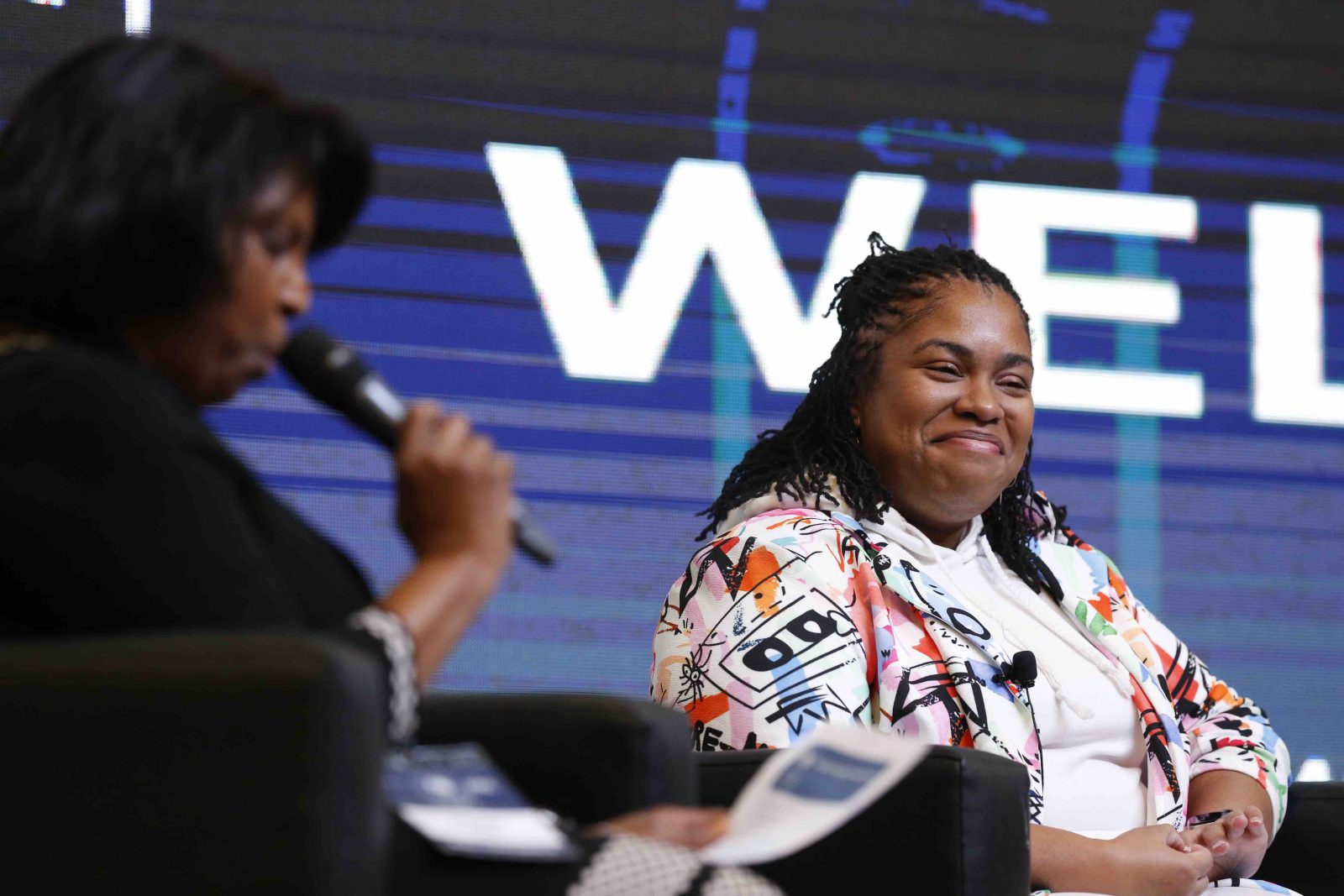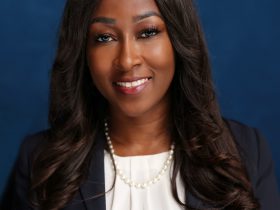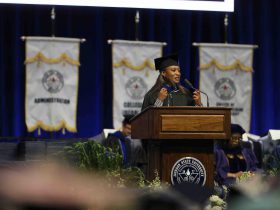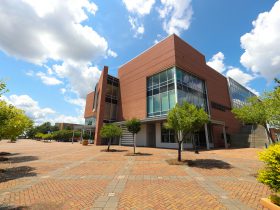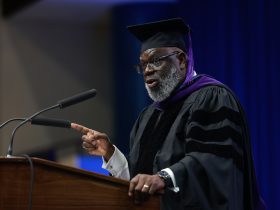By William H. Kelly III
(JACKSON, Miss.) – The 50th Anniversary Reconvening of the Phillis Wheatley Poetry Festival (PWPF) Nov. 1-4, hosted by Jackson State University’s Margaret Walker Center, kicked off its first full day of panel discussions and conversations on Thursday, Nov. 2. Black women writers, scholars, and academicians from all over the U.S. gathered to celebrate the legacy of history-making poet Phillis Wheatly and noted author Alice Walker.
Multiple plenary sessions and keynote conversations tackled topics ranging from Black literary writing kinship, ancestral preservation of Afro-Latin spiritual systems, mentorship through writing in the Black female intellectual tradition, and archival justice for Black women and girls, to name a few.
The schedule also included a luncheon and conversation on banned books led by authors Angie Thomas, Paula J. Giddings, and Nic Stone, moderated by Angela Stewart, archivist for the Margaret Walker Center at JSU. Each panelist has experienced having their literary works banned in various institutions nationwide.
“People don’t ban stories that tell fantasy. They ban books that tell the truth,” Stewart said.
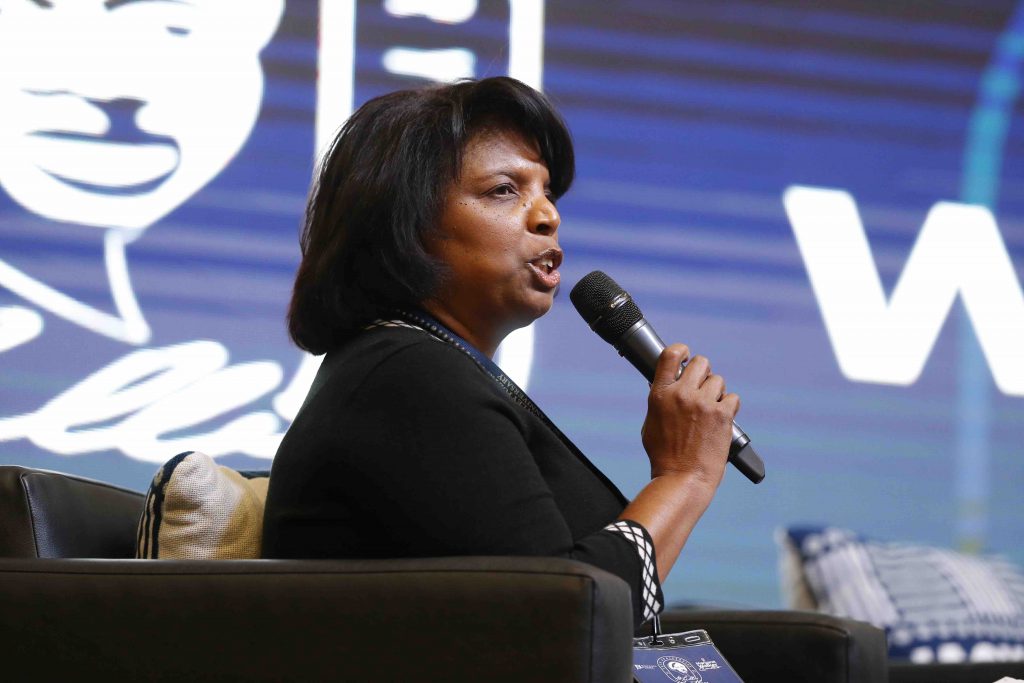
In 1773, Phillis Wheatley published “Poems on Various Subjects, Religious and Moral,” the first authored book of poetry by an African-American woman. Wheatley was kidnapped from West Africa and brought to America as an enslaved 7-year-old. Historians recall how Wheatley had to receive signed approval from 15 white men before being cleared for publishing.
“Fourteen of those white men died before the second book could be published, and we never got it. That sounds like a banning of a book to me,” said Ebony Lumumba, Ph.D., 2023 festival chair and chair of the English and Modern Languages Department at JSU.
A vision is born
In 1973, a young Giddings attended the original PWPF hosted by Margaret Walker, a JSU professor, to honor the bicentennial of Wheatley’s published work. Giddings most recently was named Elizabeth A. Woodson 1922 professor emerita of Africana Studies at Smith College. She is also the author of the biography of Ida B. Wells, “Ida: A Sword Among Lions.”
Giddings met Walker during her senior year at Howard University when Walker came to hear and critique Giddings and other “would-be poets” work.
“In some ways, what Margaret was doing in ‘73 was another Black woman’s renaissance about who was being published in the early 70s, and there was a Black poetry movement,” Giddings said.
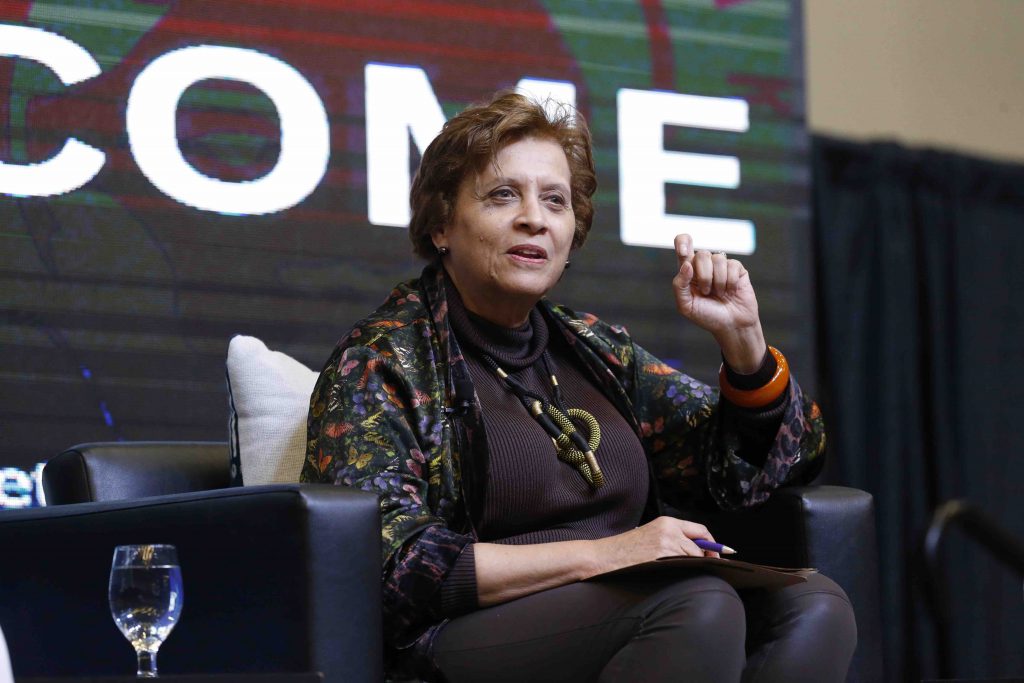
Later, Giddings and Walker attended the 1972 Paul Laurence Dunbar Centennial Celebration at the University of Dayton in Ohio. Dunbar is recognized as the first African American to gain national recognition as a poet.
According to Giddings, this is where Walker conceived the idea of hosting the Phillis Wheatley Poetry Festival. Over dinner, the two women discussed the would-be vision for the PWPF.
“She had a way of sort of knowing more about you and believing more in you than yourself. She was a great mentor that way. By that point, I was an editor at Howard University Press and was thrilled,” said Giddings, who was featured on a public policy panel and introduced Nikki Giovanni during the 1973 gathering.
“So this was extraordinary…I was very young, and not only did I always want to be a writer, but I always wanted to be in the company of writers. I always wanted to be around them. So, as you can imagine, the Phillis Wheatley Festival was like heaven, right?” she said.
More than the struggle
Fifty years later, Thomas and Stone join the original 1973 participants to discuss the state of Black literature being banned in America. The crowd roared with applause as Thomas expressed that assault rifles should be banned to protect children, not books.
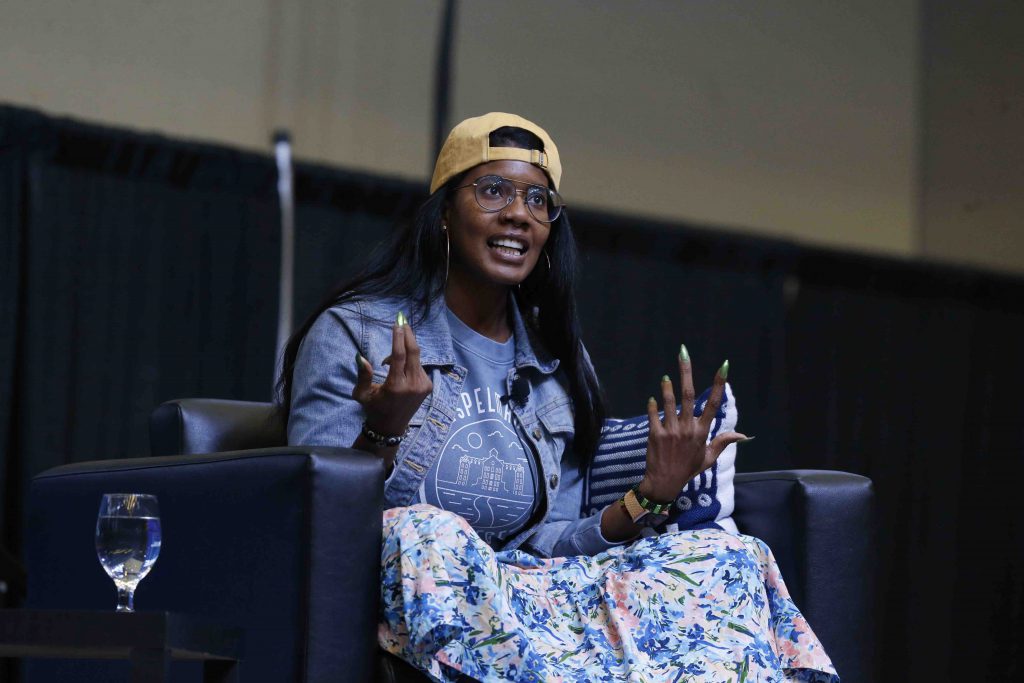
“We have young people who are finding ways to put words to their issues…then they’re going home, and they’re challenging their parents on their beliefs, their thoughts, the way that they view the world, and that’s making their parents uncomfortable,” said Thomas, who mentioned that her books have helped white children, Black children and more discover their identity and understand the Black Lives Matter movement.
Thomas is the author of “The Hate U Give,” which debuted at No.1 on the New York Times bestseller list and became a critically acclaimed film. Her second and third novels, “On the Come Up” and “Concrete Rose,” are also No. 1 New York Times bestsellers.
“So what are those uncomfortable parents doing? They’re going to the school board and making a fuss, but they’re ignoring the parents who are saying, ‘Oh, wow. This book gave my child words. This book gave my child a voice. This book helped my child figure out that they have power. That they could be an activist.’”
As the conversation persisted, viewers were introduced to the thoughts of Stone, the No. 1 New York Times bestselling author of “Dear Martin.”
She emphasized how former generations were tasked with reading novels and literature that primarily highlighted the struggle of the Black family, often with heavy themes of racism and enslavement, further impressing upon young Black readers that their life “must be about struggle.”
Stone recalls growing up without positive Black representation in the novels and books she would read.
“It made me feel translucent. It’s like I was there, but I wasn’t,” she said. “When you go through a school system that says to you, ‘you have to prove that you can be an upstanding, contributing member of society by reading and being able to discuss this particular set of books.’ None of those books have you in them; it’s not a great experience and doesn’t send a great message.”
To combat this, Stone’s novels include themes of friendship, adventure, coming-of-age, and LGBTQ+ community representation. Her books include “Dear Justyce,” “Blackout,” “Whiteout,” and middle-grade novels, “Clean Getaway,” and “How to Be a (Young) Antiracist,” all New York Times bestsellers.
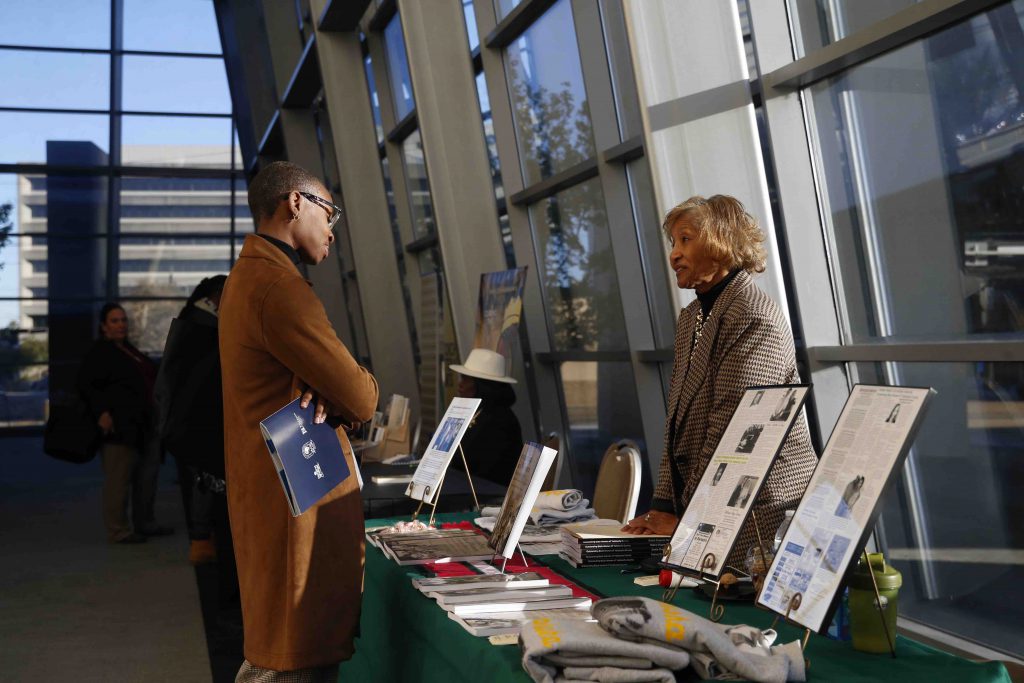
Mirrors and sliding doors
Stone and the panelists encouraged listeners and the audience to shed light on the spectrum that is the Black experience and not only when tragedy strikes.
“There are also books about Black kids who go on adventures. There are books about Black kids who possess magic. There are books about Black kids who fall in love,” Stone said. “There are books about Black kids who solve mysteries…We also do other things besides suffer and fight oppression and continue to be resilient.”
Thomas chimes in, paraphrasing a quote by Rudine Sims Bishop, Ph.D., professor emerita of Education at The Ohio State University, that defines books as mirrors, windows, and sliding glass doors.
“So many of our kids need those mirrors. When I say our kids, I’m talking about Black kids. They need those mirrors because if you’re picking up a book and you don’t see someone like you having these adventures, or you see someone like you as a stereotype, you’re just going to minimize yourself. So they need mirrors to see their full selves…Then these other kids, they need windows…To look into the lives of Black kids,” Thomas said.
She then referred to a study that showed there are more books featuring animals and trucks as main characters in comparison to Black children.
“I want my books to be the mirrors and the sliding glass doors…to step into someone’s life and see their experiences…The books that inform us they don’t just inform us of ourselves. They help us understand others. They help us see lives beyond our own. They help us get empathy. And I’m a firm believer that empathy is more powerful than sympathy,” Thomas shared.
Day one of the 2023 festival closed with an outdoor conversation and reception led by authors Nikole Hannah-Jones, Eve L. Ewing, and Dana A. Williams, Ph.D., dean of the graduate school at Howard University, followed by an exhibition featuring original photos from the 1973 festival captured by renowned photographer and filmmaker Roy Lewis.
Festival sponsors include the Mellon Foundation, the National Museum of African American History and Culture, the Community Foundation for Mississippi, and the Mississippi Book Festival.
###
Media Contact: William H. Kelly III, William.h.kelly@jsums.edu



